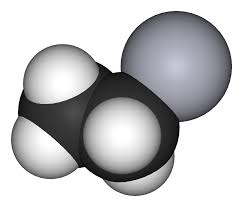cation
英 ['kætaɪən]
美 ['kætaɪən]
- n. [化学] 阳离子;[化学] 正离子
- n. (Cation)人名;(英)凯申
cation 阳离子cata-, 向下。ion, 离子,来自拉丁词eo, 走,词源同exit(eo过去分词), commencement(eo现在分词)。
- cation (n.)
- 1834, from Greek kation "going down," neuter present participle of katienai "to go down," from kata "down" (see cata-) + ienai "to go" (see ion). Proposed by the Rev. William Whewell (1794-1866), English polymath, and published by English physicist Michael Faraday.
- 1. Messaging allows real-time communi-cation by keyboard with up to five people at any one time.
- 电子信息发送能使多至5人同时通过键盘进行实时交流。
来自柯林斯例句
- 2. A spokesman said: "We have no comment regarding the publi-cation of these photographs."
- 一位发言人说,“对于这些照片的公之于众,我们不予置评。”
来自柯林斯例句
- 3. Cation exchange capacity generally increases with an increase in broken bonds.
- 通常阳离子交换量随破裂增加而增大.
来自辞典例句
- 4. An increase in cation exchange capacity of the tissue should be observed.
- 可以观察到植物组织中阳离子置换能力的提高.
来自辞典例句
- 5. The cation penetrates the spore.
- 这种阳离子能透入孢子.
来自辞典例句
[ cation 造句 ]
